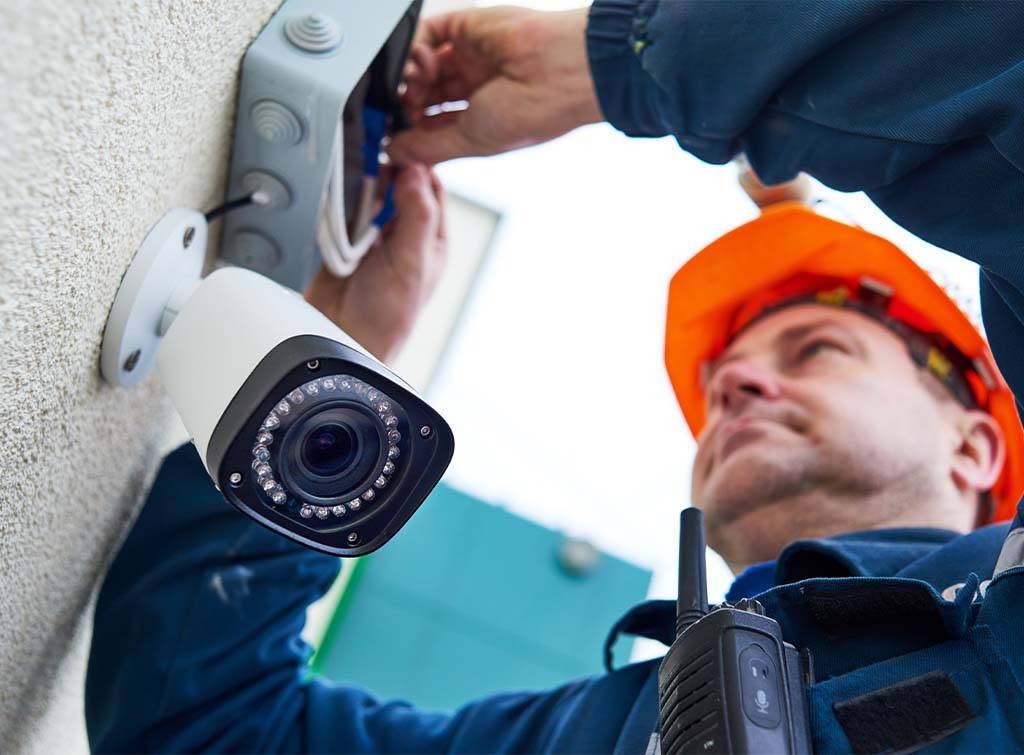Installing a CCTV system at home has become increasingly popular in recent years. With the rise of crime rates and the need for increased security, many homeowners are turning to CCTV as a way to protect their property and loved ones. But is it really worth the investment? And how can you install a CCTV system in your home?
When it comes to the question of whether or not CCTV is worth it, the answer is not a simple one. While CCTV can provide valuable evidence in the event of a break-in or other crime, it can also be expensive and may not be effective in deterring criminals. Additionally, there are privacy concerns to consider, as CCTV footage can potentially be accessed by unauthorized parties.
If you do decide to install a CCTV system in your home, there are a few things to keep in mind. First and foremost, it’s important to choose the right system for your needs. This may involve researching different types of cameras, as well as considering factors such as image quality, storage capacity, and remote access. It’s also important to ensure that your system is installed correctly and securely, in order to maximize its effectiveness and protect your privacy.
- The Value of CCTV at Home
- How to Install CCTV at Home
- Legal Implications of CCTV at Home
- Alternatives to CCTV at Home
The Value of CCTV at Home
CCTV (Closed Circuit Television) is a security system that involves the use of video cameras to monitor and record activities in and around a property. It has become increasingly popular among homeowners who are looking to enhance the security of their homes.
One of the main benefits of CCTV at home is that it provides a sense of security and peace of mind. Knowing that your property is being monitored can deter potential intruders and prevent crimes from occurring. In the event that a crime does occur, CCTV footage can provide valuable evidence to help identify and prosecute the perpetrator.
Another advantage of CCTV is that it can be used to monitor the activities of children, elderly family members, and pets. This can be particularly useful for working parents who want to keep an eye on their children while they are away from home.
When it comes to installation, there are a few things to consider. Firstly, it is important to choose the right location for the cameras. They should be placed in areas that are vulnerable to break-ins, such as doors, windows, and other entry points. It is also important to ensure that the cameras are positioned at the right angle to capture clear footage.
In addition, homeowners should consider the type of CCTV system they want to install. There are wired and wireless options, each with its own advantages and disadvantages. Wired systems are generally more reliable and offer better image quality, but they can be more difficult to install. Wireless systems, on the other hand, are easier to install and can be more flexible in terms of placement, but they may be more susceptible to interference and hacking.
Overall, CCTV at home can be a valuable investment for homeowners who are looking to enhance the security of their properties. By providing a sense of security and peace of mind, it can help to deter potential intruders and provide valuable evidence in the event of a crime.
How to Install CCTV at Home
Installing CCTV at home can seem like a daunting task, but it doesn’t have to be. Here are a few steps to follow to help make the process smoother:
- Determine the areas to be covered: Before purchasing any cameras, it’s important to decide which areas of the home need to be monitored. This will help determine the number of cameras needed and their placement.
- Choose the right cameras: There are many types of CCTV cameras available, each with its own features and specifications. Make sure to choose cameras that are suitable for the areas they will be placed in and that have the necessary features, such as night vision or motion detection.
- Install the cameras: Once the cameras have been chosen, it’s time to install them. This can be done by following the manufacturer’s instructions or hiring a professional installer.
- Set up the recording system: Most CCTV systems come with a recording device, such as a DVR or NVR. It’s important to set up the recording system properly to ensure that footage is captured and stored correctly.
- Test the system: After installation, it’s important to test the system to ensure that all cameras are working properly and that footage is being recorded and stored correctly.
By following these steps, installing CCTV at home can be a straightforward process. It’s important to remember that proper installation and maintenance of the system is crucial to its effectiveness.
Legal Implications of CCTV at Home
Installing CCTV at home can have legal implications that homeowners should be aware of. While it is legal to install CCTV at home, there are certain legal restrictions that need to be followed.
One of the main concerns with CCTV at home is privacy. Homeowners need to ensure that they are not infringing on the privacy of their neighbors or passersby. CCTV cameras should be installed in such a way that they do not capture images of other people’s property or public spaces.
Homeowners also need to be aware of the data protection laws and regulations. They need to ensure that the CCTV footage is not used for any unlawful purpose and that it is stored securely. Homeowners should also inform visitors and employees that CCTV cameras are in operation.
In case of any criminal activity captured on CCTV, homeowners should handle the footage with care. They should not share the footage on social media or with anyone who is not authorized to view it. If the footage is required by law enforcement agencies, homeowners should comply with their requests.
Overall, CCTV at home can be a useful tool for enhancing security. However, homeowners need to be aware of the legal implications and ensure that they are in compliance with all the relevant laws and regulations.






